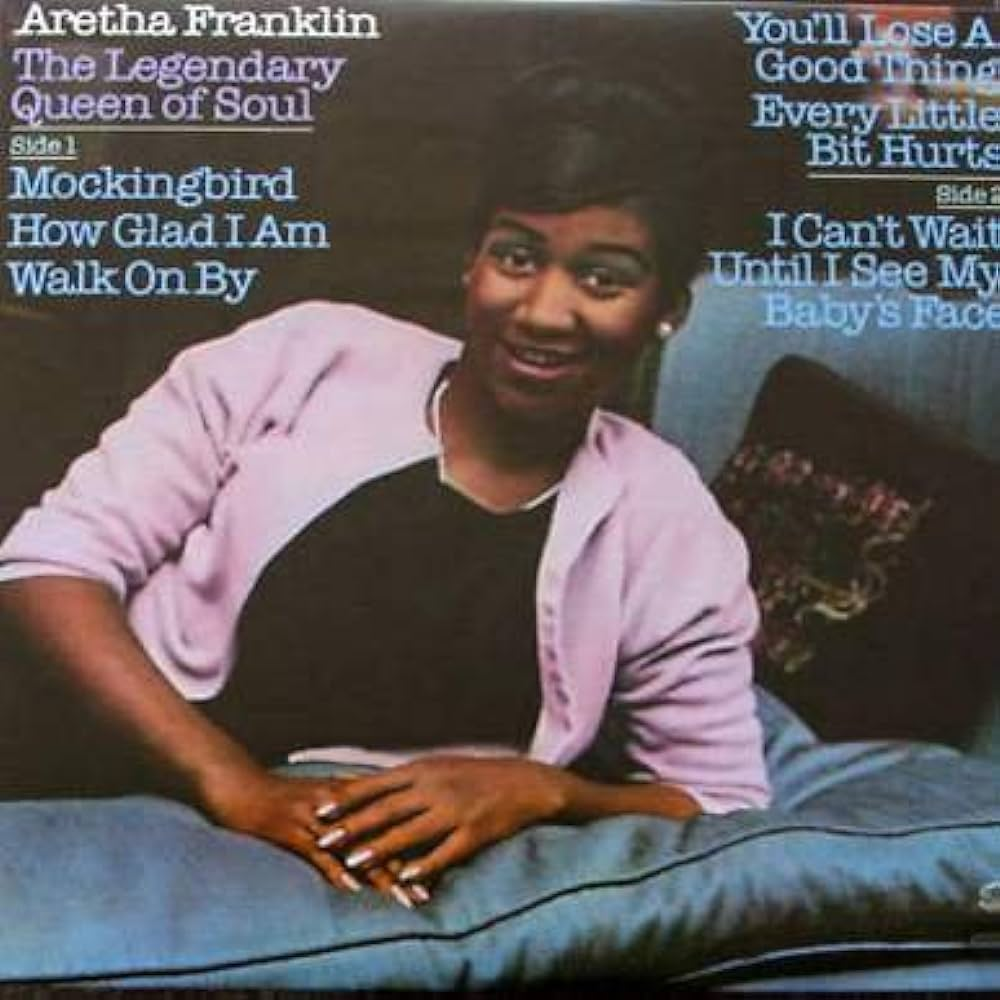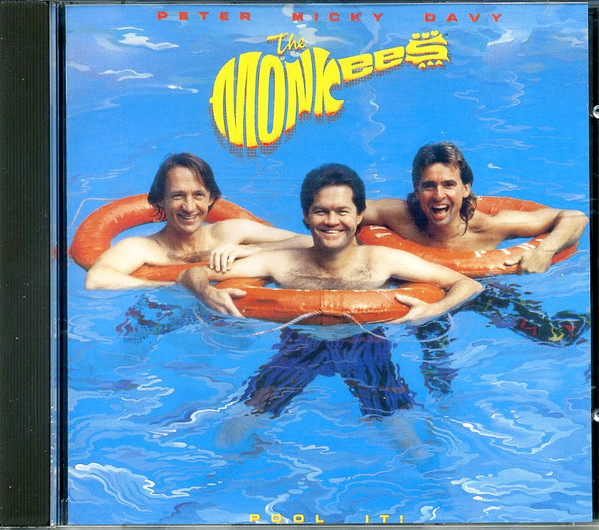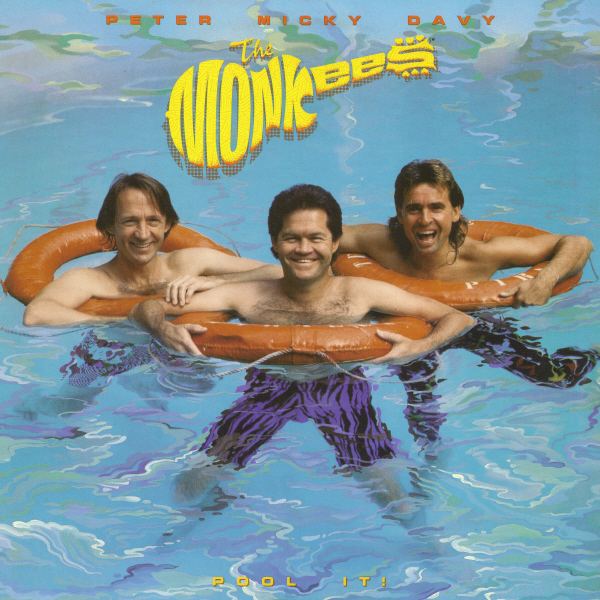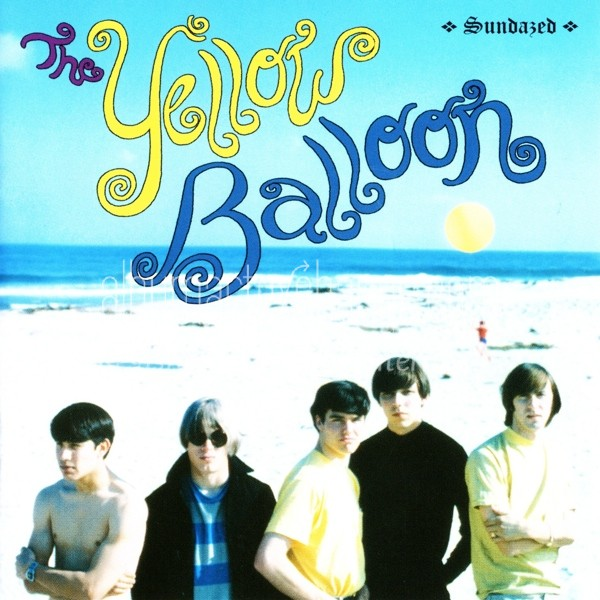(by Johnny Cum-Lately, guitarist for ROUGE!)
I was born and the sixties died.
In “1970” Iggy Pop yowled, “I feel all right.” Few young people probably agreed with him. The year was when the Vietnam War expanded into Laos and four Kent State students were murdered by National Guard troops. In music, the year of my birth was highlighted by three musical calamities: The breakup of the Beatles; and the deaths of Jimi Hendrix and Janis Joplin. Boomer lore claims the final nail in the sixties rock coffin was Jim Morrison’s death in July 1971. The death of sixties music took place while Morrison was still drinking himself to death.
In addition to the big three, 1970 was the year that Peter, Paul and Mary, breakout stars of the early sixties’ folk
revival, split up to pursue solo careers. Just one year earlier, the trio topped Billboard’s Hot 100 during Christmas with John Denver’s “Leaving on a Jet Plane.”
Also calling it quits in 1970 were Simon and Garfunkel, sixties icons who had the year’s biggest album, “Bridge Over Troubled Water,” and the title track was the biggest song of the year. The song won enough Grammys to sink a boat floating in troubled water.
The 1970s are, arguably, rock’s greatest decade. It saw the emergence of many styles that are still popular: Punk, metal, dance music (in the form of disco), electronica, hip-hop, and prog (assimilated into metal). Think of your own tastes and I guarantee you love an act that either started during the decade or had its biggest success then. It’s as if the seventies were timeless, full of songs and albums that will outlive us all.
Consider: Black Sabbath, David Bowie, the Ramones, Stooges, Queen, Fleetwood Mac, Elton John, Led Zeppelin, the Cars, Devo, Stevie Wonder, Steely Dan, Marvin Gaye, Aerosmith, Van Halen, P-Funk, Joni Mitchell, et al, meet the criteria laid down in the previous paragraph. We can add more to this list.
But we’re not here today to talk about quality. We’re going to discuss the forgotten chunk of half-used moldy cheddar lurking in the back of your fridge.
We’re taking this drive in a pea-green 1975 AMC Pacer equipped with an 8-track player. And on this drive, we’re wearing a red plaid suit with a wide-collared brown Dacron dress shirt left half open to
show off an untrimmed chest.
Did you honestly think that in a column called “The Albums That Ruined Us” we’d be talking about “Funhouse,” “Maggot Brain,” or “Rocket to Russia”?
My goal is to give you, the consumer, a truly complete picture of seventies music, for good or ill.
Find yourself a hazmat suit. You’re gonna need it.
When I’m not attacking a Fender Stratocaster in ROUGE!, I work as a college librarian. Part of a librarian’s job is historic preservation, whether it’s important documents, local history materials, or keeping that century-old copy of Jerome Jerome’s “Three Men in a Boat” in good condition. That said, my biggest historical preservation interest is in albums and records. And recently, in the name of having some sort of historical record, I created a playlist called “My 45s as a kid.”
My memory is sharp, so compiling a 28-song, 113-minute playlist was simple. However, it’s incomplete. Only two B sides are included, thereby destroying what little hipster cred I had. I owned at least one KC and the Sunshine Band 45, but I don’t remember which song it is. I’m sure I had more 45s back then, but they got spun so infrequently that no imprint was made. The ones that are on the playlist made the biggest impact. There’s some true classics on the playlist (“Pinball Wizard,” “Bennie and the Jets,” “Dust in the Wind,” “Bohemian Rhapsody”). There’s also dreck. Guess where we’re going?
I don’t recall how I acquired most of the 45s I had in my pre-K, kindergarten, and early elementary school years (1973-1977). I know my parents provided nearly all of them, but I don’t know if I asked for any of them. Once I showed a love of Elton John, they’d get some of his newer singles. Maybe my dad, a former musician who was an avid album collector, belonged to a record-of-the-month club? I say that because in researching this column, I discovered that some of these vintage vinyl Velveeta we’ll look at topped the Billboard Hot 100.
We’ll examine each of these pieces of moldy musical muenster in approximate chronological order of release. Keep in mind this shitlist is free of Tony Orlando & Dawn, Helen Reddy, “Billy, Don’t Be a Hero,” “The Night Chicago Died,” “You’re Having My Baby,” or “Disco Duck.” But what we’re about to look at will taste just as bad as drinking lukewarm orange juice after brushing your teeth.
Put on that hazmat suit. Now.
“No-No Song” – Ringo Starr: Dad was a Beatles fiend. He had nearly every American LP they released. Those albums got regular spins on the living room hi-fi stereo. He loved the Beatles. I do too. As a preschooler, I used to flip through his album collection. I was fascinated by album covers. Since my early childhood was just a few years after the psychedelic era, the LP covers were colorful. Many of those albums are today considered classics. Notably absent from his collection were Beatle solo records.
During the first half of the 1970s, all four Beatles were viable solo artists. Even Ringo. And if one gauges success by Billboard No. 1 hits, Ringo was, for a time, more successful than John Lennon. By the end of 1975, Ringo led Lennon 2-1, but Ringo was close to 100 pitches. He was about to leave the game as disco warmed up in the bullpen.
It may be hard to believe, but “Instant Karma” wasn’t a No. 1 hit. Neither was “Working Class Hero.” Ditto for “Mind Games.” And despite many overwrought cover versions, neither was “Imagine.”
Lennon’s only No. 1 hit of the polyester decade was 1974’s “Whatever Gets You Through the Night,” a largely forgotten song that featured Elton John, then at his commercial peak, essentially sharing the lead vocal. Lennon wouldn’t catch his former drummer until the final week of 1980, when “Starting Over” went to No. 1 in the wake of his murder.
So yeah, Ringo had two No. 1 solo hits. “No-No Song” was not one of them. “No-No Song” was on his album “Goodnight Vienna,” which was released the same year (1974) as “You’re Sixteen,” which was his second – and final – song that topped the Billboard Hot 100. “No-No Song” was released as a single in early 1975 and reached No. 3 on Billboard. It was a No. 1 hit in Canada. Canada also gave us the hard rock band Monster Truck. These facts are not related but show that even awesome countries support lousy music.
“No-No Song” features a beat that, while not quite disco, is close. It even has horns. In it, the narrator declares, with a hint of a Jamaican accent, all the things he doesn’t do no more, like smoking marijuana, snorting cocaine, and drinking alcohol (specifically moonshine) because he’s “tired of waking up on the floor” and “it makes it hard to find the door.” Meanwhile, Ringo had a serious drinking problem during this time that continued until he entered rehab in the late eighties. He sadly had a lot of experience waking up on the floor and having trouble finding the door.
This tune has a vibe of a bunch of celebrity musicians getting together in the studio to record a temperance anthem while a mountain of cocaine sits atop the mixing board, and everyone drinks champagne between takes. Irony can be pretty ironic.
Did I mention my parents got a 4-year-old child this record? And said 4-year-old child played this record a lot? But maybe the song worked. I never tried cocaine. I also never thought about Ringo in the context of a solo artist. After the mid-seventies, neither did millions of others.
Three years ago, as of this writing, I saw Ringo’s All-Starr Band. This was the first – and possibly only – time that I got to see a Beatle. I don’t recall if “No-No Song” was played. But at one point during the show, Ringo, in a lecherous voice, asked “Are there any little girls in the audience tonight?”
Me: “RINGO, NO!”
After the cheers (CHEERS???) subsided, he said, “This song is for you.” The All-Starr Band launched into “You’re Sixteen.”
“You’re sixteen, and you’re mine,” sang Ringo. He was 78 FREAKING YEARS OLD.
By today’s standards, “You’re Sixteen” is creepy AF. Ringo’s tone-deaf introduction didn’t help. He would’ve been better off announcing that the next song was a number 1 hit for him, and that he hopes everyone enjoys it. I would’ve been ok with that, even if he was 33 years old when that song topped the charts.
No no no no, I don’t want cringe no more …
“Love Will Keep Us Together” – The Captain and Tennille: And you thought the hazmat suit talk was all hype.
I am not going to analyze why this song is bad. There’s plenty of that online. There’s no sense in piling on. But I will say that some strange noises emanate from The Captain’s keyboards during “Love Will Keep Us Together,” and they’re not strange in a good way.
Instead, I’m going to talk about “The Captain,” a.k.a. DARYL DRAGON. He got one of the coolest names ever and blew it.
Forget the turtlenecks and captain’s cap. He should’ve grown his hair out and started wearing satin capes (keeping the aviator shades, because aviator shades rule). He should’ve formed a proto-metal band called Dragon’s Lair. Said band could’ve featured DARYL DRAGON laying down some lengthy, complex keyboard solos in the middle of songs about Viking voyages, Visigoth conquests, and dwarves terrorizing hapless villagers. He could’ve been a keyboard god like Jon Lord, Keith Emerson, and Rick Wakeman. His band would’ve been better than Atilla, Billy Joel’s short-lived proto-metal duo. They couldn’t have been much worse.
Instead, a man named DARYL DRAGON marries an attractive female singer, scores several pop hits with her, makes a fortune, and … yeah, he probably made the right move. Especially since he later owned the recording studio where Guns N’ Roses recorded “Appetite for Destruction.”
And while we’re at it, quit dissing Toni Tennille. Four years after her and DARYL DRAGON released their signature song, she provided backing vocals on Pink Floyd’s “The Wall.” Everyone deserves a shot at redemption.
“Bad Blood” – Neil Sedaka: The same year this topped the Hot 100 for three weeks, classics like “Fame” by David Bowie, and “Shining Star” by Earth, Wind and Fire also topped the charts. Since my dad has passed on, I must ask my mom: “WHY DID YOU BUY ME THIS PIECE OF CRAP?” Oh, that’s right, Elton John provides uncredited backing vocals on “Bad Blood.” Elton was at his commercial peak in 1975, and he was my first musical hero. Buying this single for me made sense. And as far as my parents selecting my music, all parents make mistakes.
For those of you who don’t know (which is probably everyone reading this screed) Neil Sedaka was kind of a big deal in the early sixties. He was a successful Brill Building songwriter, scored some hits as a performer, and had a No. 1 hit in August 1962 with “Breaking Up is Hard to Do.” Then The Beatles arrived and Sedaka disappeared from the American pop scene for more than a decade. Eventually, he met Elton John, and Sedaka signed to the Elton’s new Rocket Records label.
What followed was, at the time, perhaps the greatest comeback in American pop music history. Sedaka was more popular than ever in 1975, and he seemingly was as unlikely a pop star as can be imagined. He was in his mid-thirties. In some photos from that time, he looks pudgy and appears to have a combover. And he still became, for one year, a bona fide pop star.
Sedaka had a role in three No. 1 singles in 1975. He co-wrote “Love Will Keep Us Together,” for DARYL DRAGON and Tennille. As a performer he topped the charts twice that year. “Bad Blood” was his second No. 1 of the year – and last of his career.
“Bad Blood” is mostly forgotten today, but it deserves more respect in pop music history. In this song, Neil Sedaka unwittingly became a rap pioneer.
Sedaka’s contribution to the future genre appears in the second and third chorus, when the word “bitch” is sung. “Bad Blood” was probably the first No. 1 song to feature that word as a lyric. Prior to
Sedaka’s groundbreaking contribution, the closest that word came to appearing on a No. 1 single was as the title of the B-side to the Rolling Stones’ “Brown Sugar” in 1971. I’ve listened to “Bad Blood” a few times recently. It’s a man talking to his friend, who was mistreated by a woman. Sedaka’s voice is thin, but he and Elton blend well in the chorus. Musically, it’s dated, but so are most pop hits from any year. It has a keyboard part that hints at funk, but the song itself goes nowhere. It’s mid-tempo and it stays there. It doesn’t inspire dancing, fast driving, volume cranking, head banging, moshing, or any combination thereof. It’s exists for 3 minutes and 10 seconds, provided you don’t tap out earlier.
And what does “bad blood” have to do with a woman who mistreats a man? Did she get a tainted transfusion? Is there a blood disorder that causes women to mistreat a man? Are there certain blood types that predisposes a woman to commit heinous acts? The title (repeated throughout the chorus) makes no sense in the context of the verses, which are delivered like a high school guy taunting his friend about that girl who mistreated him. So, it’s not cool for her to treat him “like small change,” but the narrator can talk to his so-called friend the same way?
Dear Neil Sedaka: You come off as a jerk in this song.
“Sky High” – Jigsaw: The best way to describe “Sky High,” is just like the pea-green Pacer I mentioned earlier: DOA. In this case, the acronym means Dated on Arrival.
Jigsaw was a British pop-rock act that in the U.S. was a one-hit wonder. In this case, “one-hit wonder” means you’re puzzled as to how the hell they ever had one hit.
“Sky High” was the main theme to the 1975 martial arts action yarn “The Man from Hong Kong.” It stars George Lazenby, who played James Bond once (“On Her Majesty’s Secret Service”). “The Man from Hong Kong” has a 6.6 rating on IMDB, meaning that it is apparently a better movie than every Cheech and Chong picture, “Manos: The Hands of Fate,” “Freddy Got Fingered,” and “Twilight.” So beautiful.
This up-tempo song was a smash, going top 10 in seven countries and top 20 in two others. In the U.S., it peaked at No. 3 on Billboard. Musically, the song opens with blaring horns, a sub-disco hi-hat riff, and chicken scratch guitars. It sounds like a mid-seventies’ movie theme – to a blaxploitation film. But once the vocals of drummer Des Dyer start, we are whiter than Syracuse after a lake-effect blizzard.
I haven’t seen “The Man from Hong Kong,” but reading the brief synopsis on IMDB makes me wonder what “Sky High” has to do with the movie. The lyrics are about a guy proclaiming how wonderful his love affair could’ve been with an unnamed person (presumably a woman, given the homophobia of the times) who blew it all sky high, by telling him a lie, without a reason why.
What was the lie? Did said person say they were going to get Biffo Beech good seats for an Arsenal-Manchester City match and not come through? Did this person promise to meet Biffo at Applebee’s on a date night, but instead showed up at Wendy’s? We never find out what the lie is, but based on Biffo’s chirpy lyrical delivery, totally devoid of intensity, the lie couldn’t have been that bad. Biffo Beech doesn’t seem too upset. Why should we care?
But what makes this song stink, rather than just a dated artifact? It’s during the chorus, when Biffo Beech goes to the top of his vocal range and drags out the word “high.” Biffo Beech blew that one sky high, by telling the producer a lie – that he could not only hit that note, but sound good doing it.
“Saturday Night” – Bay City Rollers: Fuck you I still like this song.
“Convoy” – C.W. McCall: Listening to pop radio in the early and mid-seventies could easily transform into story time. Those were the years were when story songs were at their peak. Two great examples of this style both were No. 1 in their time: Jim Croce’s “Bad, Bad, Leroy Brown” and Harry Chapin’s “Cats in the Cradle.” If you’re a dad, especially if you have a son, hearing “Cats in the Cradle” at the wrong time will reduce you to tears.
“Convoy” is also a story song. It’s cheesy. It will not reduce you to tears. Well, maybe not the kind of tears that “Cats in the Cradle” inspire. But you know what “Convoy” can lay claim to? It spawned a pop-culture phenomenon. In a way, “Convoy” was the “Macarena” of the mid-seventies.
“Convoy” tells the story of a group of truckers uniting, driving across the country, defying speed limits, and evading the cops (known as ‘bears” in the ‘70s trucker slang of the song). We never find out why the truckers have decided to take on the bears outside of Flagtown. Or was it Tulsa Town? Do I really have to listen to this again for the sake of 100 percent accuracy?
The story is that the truckers continue to go “’cross the USA” and evade the cops, the “bear in the air,” the Illinois National Guard, blow through the toll booths of New Jersey, all to some unspecified location on the east coast. “Let them truckers roll!”
I have questions: What started this convoy? What’re they mad about? And how did they drive from Shakeytown to the Jersey shore without running out of gas? Logically, the bears would’ve nabbed those “thousand screaming trucks” well before they encountered the Illinois National Guard in Chicago; all those trucks would’ve run out of gas.
“Convoy” has a few plot holes. But what it lacked in literary finery it made up for in the deep baritone of C.W. McCall (an alias for an advertising executive) delivering the CB slang of the day. And it’s that CB slang that makes the song an oddly compelling listen. Musically, it’s a hodge-podge of dated countryish elements, like banjos coming in the second verse.
“Convoy” was a No. 1 hit for just one week in January 1976. But in its wake, it seemed more and more regular folks bought CB radios. They were the cell phones of the day. It was how people learned about accidents on the road ahead, speed traps, or the antics of a driver and a truck stop hooker at the rest stop you just passed. My parents had a CB radio in our motorhome. I hope dad didn’t call himself the Rubber Duck or Pigpen.
A couple of years after the song topped the charts, “Convoy” was turned into a movie. This film looks like it stinks. Here’s the trailer of another picture that cashed in on the fad.
And yet somehow, “Convoy” is a reliable go-to in any “worst songs ever” list. I’m not sure why. Dated? Absolutely. Cheesy? Like homemade mac and cheese. A novelty song? Of course. But so is “I’m Too Sexy,” which is one of the greatest songs ever written. Why? Because it’s fun. I guess “Convoy” is as well.
This tune is considered a country song, mainly because it’s about truckers. In general, I LOATHE country music. But I was 5 years old when this song dominated radio. The story and delivery would probably appeal to any 5-year-old, even today’s kids. These children can watch “Frozen” every day for a year and still love it, whereas the kid’s parents were ready to let it go after seeing it for the fifth time this week and it’s only Tuesday.
We should not entrust our pop culture to 5-year-olds. Bad things happen when we entrust our pop culture to 5-year-olds.
“Afternoon Delight” – Starland Vocal Band: ROUGE! vocalist/drummer Harvey V.D. likes to sit on the toilet and sing this song while playing his acoustic guitar. I could end this in-depth, scholarly analysis of this song right here, but more must be said. Out of all the examples of bad seventies songs, why does this one receive so much invective? Why isn’t more hate directed at “Shannon,” a hit single (peaking at No. 6) for Henry Gross that’s from the same year (1976) as “Afternoon Delight.” “Shannon” is about a DEAD DOG.
“Afternoon Delight,” meanwhile, is a celebration of midday sex. People are more tolerant of a DEAD DOG than they are about getting it on in the afternoon. This is America. We work in the afternoon! If you’re not working, you’re lazy, don’t care about your family, and are probably a woke communist snowflake instead of a real American with real values! Because real Americans apparently prefer a DEAD DOG to boning in the afternoon.
I’m not going to pile on “Afternoon Delight.” It’s done. It’s a cliché. You want to read about how lousy this song is, you can find it online.
Maybe this ditty gets hate because it helped Starland Vocal Band win the Grammy for best new artist instead of Boston. Yes, ahead of the band that gave us “More Than a Feeling.” Ahead of the band whose self-titled debut was, for many years, the biggest selling debut album in history. The Ramones debut album was released the same year as “Afternoon Delight,” but hardly anyone bought that first Ramones album that year. More people, including two young parents in Las Vegas, bought “Afternoon Delight.” So maybe some hate is justified.
Does “Afternoon Delight” stink? Not really. The female vocals sound a bit screechy, but it’s no worse than a lot of other mediocre pop songs that went No. 1. Its biggest crime is that it’s from mid-seventies and is not about a DEAD DOG. I say, let’s get it on at 2 in the afternoon. Everyone couple up, forget waiting ‘til the cold dark night, because everything is clearer in the light of day. Put skyrockets in flight. Let’s all get sweaty and fill the air with grunting sounds. Let’s turn our houses, our apartments, the vans we live in down by the river, into Chateau Grunteau. Let El Grunteau in the afternoon reign supreme!
…Unless you all would rather hear about a DEAD DOG.













